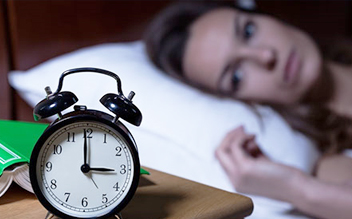
Insomnia is the inability to get enough sleep, or a restful sleep. The average person needs 7-9 hours of quality sleep to function normally. Insomnia can be caused by a number of medical or behavioral factors such as stress, tension, shift-work, etc.
Insomnia is characterized by the following
Symptoms and causes of insomnia are different for every patient. Insomnia symptoms may include:
© Copyright 2019 Powered by Carolina Pulmonary & Sleep Clinic. All Rights Reserved.